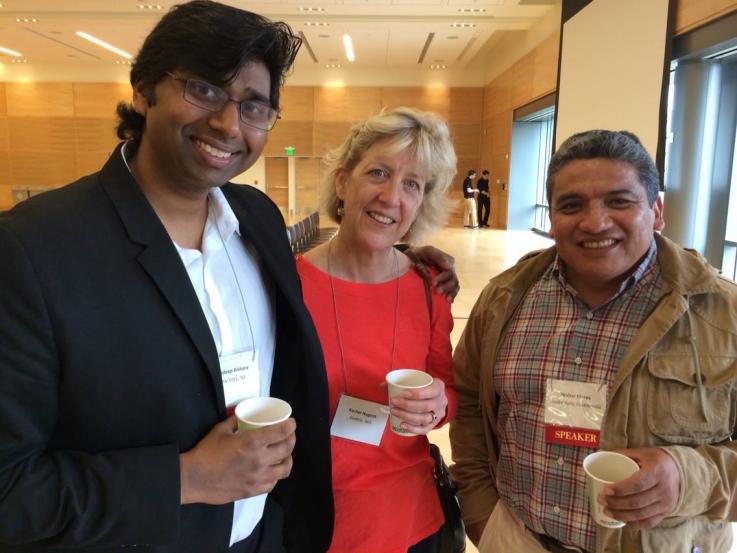“Global health and social movements must be anchored at the local grassroots level,” said Walter G. Flores, the first panelist to speak this Sunday at the WRIHC’s final plenary session.
Flores, who works for the Center for the Study of Equity and Governance in Healthcare Systems, was one of four distinguished keynote speakers who wrapped up this weekend’s global health conference in the spirit of social justice and activism.
UW students and healthcare professionals in the audience sipped coffee, grazed on pastries and listened to Flores speak about improving healthcare access for Guatemala’s indigenous communities by “tackling inequities of power.”
Flores said effective social change must start from within local communities – it cannot be prescribed by NGOs coming in with their own ideas of what’s best. Instead, organizations like CEGSS should act as enablers providing local people with the tools needed to fight for themselves.
“We can’t assume we have all the right answers and can tell [locals] what to do,” he said.
Immigrant-rights organization OneAmerica is also embracing grassroots mobilization and community building as vessels for social change, according to policy manager Roxana Norouzi, who spoke after Flores.
She says OneAmerica has transformed over the past couple of decades from a “reactionary” service provider to a proactive grassroots organization. Now, OneAmerica seeks to challenge power structures through on-the-ground advocacy, leadership in immigrant communities, and “changing the story around immigrants – and changing who is telling it.”
Thanks to OneAmerica’s many community base groups that facilitate civic engagement, the organization spearheaded last year’s passage of the Washington State DREAM Act. Norouzi says this crowning achievement was a direct result of “the army of youth putting pressure on the state legislature to take action.”
‘Power to the people’ seemed to be the recurrent theme throughout all of Sunday morning’s presentations.
Kristen Beifus of the United Food and Commercial Workers Local 21 talked about the importance of free trade as a tool for revitalized standards of living — how unjust trade policies e deepen economic disparities throughout the world.
”It is only through collective resistance that we can stop these trends,” she said. “We must act locally to support global change.”
Sandeep Kishore of the Young Professionals Chronic Disease Network made a similar point in his speech as the final keynote speaker, ending Sunday’s plenary session on a motivational note (and with more than a few quips).
Sandeep Kishore, PhD, delivers the closing keynote address on Sunday about social activism within the global health sphere. Photo: Melanie Eng
“As students, our collective social capital is way more powerful than that of any single faculty member here,” he said.
Kishore, who spent a big chunk of his life as a PhD student and self-described lab-rat, said rocking the boat — even when it’s unpopular to do so — is what keeps society moving forward. And it doesn’t have to be in a big way.
“Not all of us are going to be rallying on the streets or going on hunger strikes,” agreed Norouzi in the day’s closing Q+A. “But you can take the spirit of activism with you, wherever you go.”
This is a blog post by Melanie Eng from the 11th Annual Western Regional International Health Conference, held at UW April 4-6, 2014. Melanie Eng is a journalism and international studies major at the University of Washington. She can be reached via email at eng.melanie@yahoo.com.

